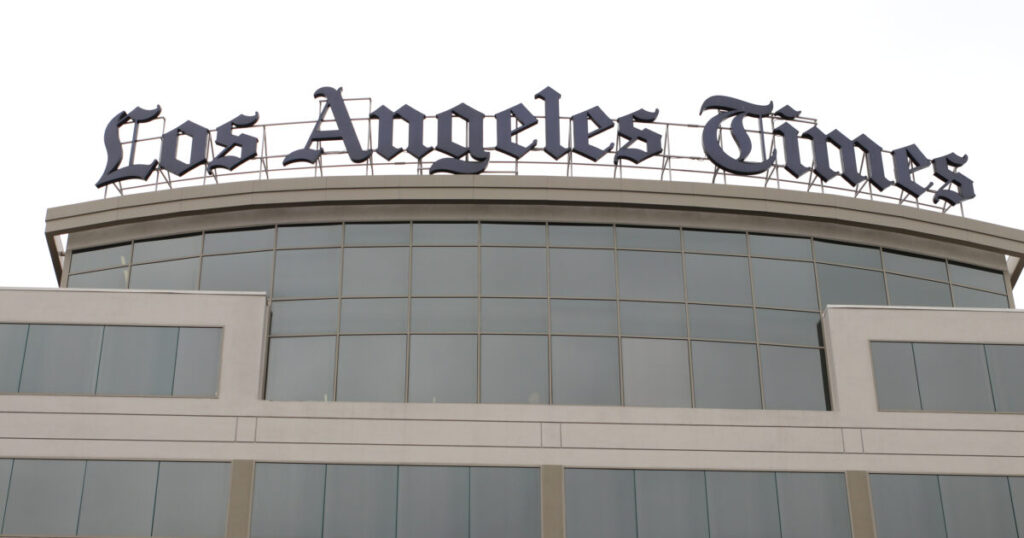The Los Angeles Times, traditionally known for its strong Democratic endorsements, has notably decided not to support Vice President Kamala Harris in the upcoming 2024 presidential election. This represents a departure from the publication’s consistent endorsement of prominent Democratic candidates, including Barack Obama, Hillary Clinton, and Joe Biden, reflecting a dramatic shift in political sentiment. The paper’s editorial board has published endorsements for local and congressional races, but conspicuously excluded any recommendation for the presidential race, suggesting a significant decline in Harris’s support even within traditionally liberal circles.
The Los Angeles Times’ decision is of particular significance given the editorial board’s declaration of the 2024 election as “the most consequential in a generation.” Their deliberate silence regarding Harris underscores rising concerns about her diminishing popularity and credibility among Democrats. Sources indicate that this choice may have been influenced by the paper’s owner, Dr. Patrick Soon-Shiong, who reportedly blocked any endorsement of Harris. This kind of editorial intervention is not new; it mirrors a similar situation in 2020 when Soon-Shiong prevented the paper from endorsing Elizabeth Warren during the Democratic primaries, highlighting an ongoing trend of top-down influence on editorial decisions.
Reports suggest that the editorial board was ready to endorse a candidate for the presidential election, only for executive editor Terry Tang to inform staff that no endorsement would be made this time. This development has caused concern among Democratic voters, particularly those hoping to see the party rally around a candidate who can navigate the challenges ahead. While the LA Times did not offer an explicit rationale for its decision, it did assert that endorsements are selectively made for the most consequential races, hinting that perhaps Harris’s candidacy did not meet those criteria in their assessment.
The absence of support from a major outlet like the Los Angeles Times is telling, especially as Harris’s political fortunes appear to be diminishing. For Democrats who have witnessed the erosion of Harris’s standing, this lack of endorsement raises alarms about the party’s chances in the upcoming election. The inability of even left-leaning media to endorse Harris suggests a broader concern among voters about her viability as a candidate, complicating her campaign strategy and raising doubts about her capacity to energize the party base.
Harris’s drop in popularity is increasingly seen as troubling for the Democratic Party, which historically has leaned on influential endorsements to galvanize support for their candidates. The LA Times, once a reliable ally for Democratic hopefuls, now seems reluctant to invest its credibility in a campaign that lacks momentum. This retreat, indicative of broader national trends and sentiments, reflects the struggles Harris faces as she attempts to maintain support among key demographics as well as within her party.
As the 2024 election approaches, the fallout from the LA Times’ decision not to endorse Harris serves as a reminder of the challenges facing her campaign. The combination of dwindling support from major media and an uncertain voter base could significantly impact the Democratic Party’s chances in the upcoming election cycle. The party will need to reassess its strategy and approach if they are to regain confidence in their candidate and secure a successful outcome in what is already viewable as a pivotal election year.

